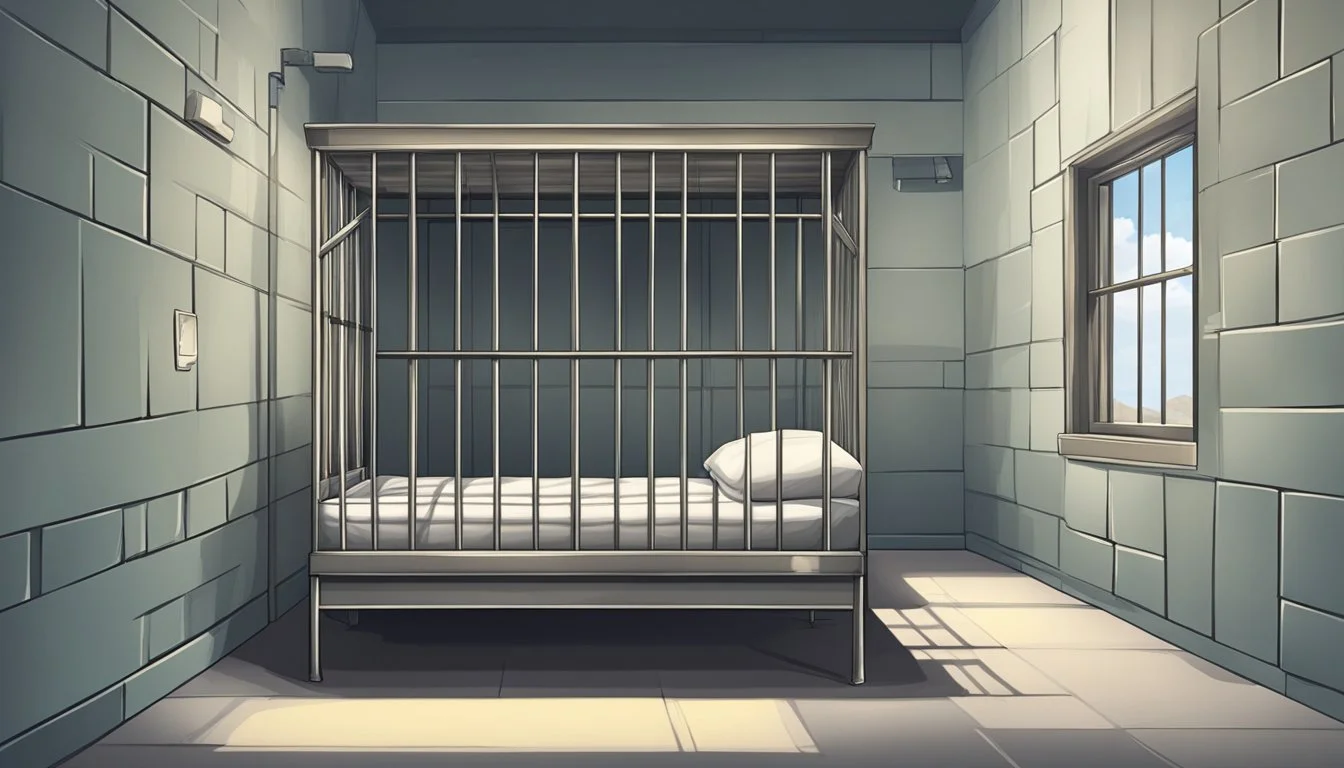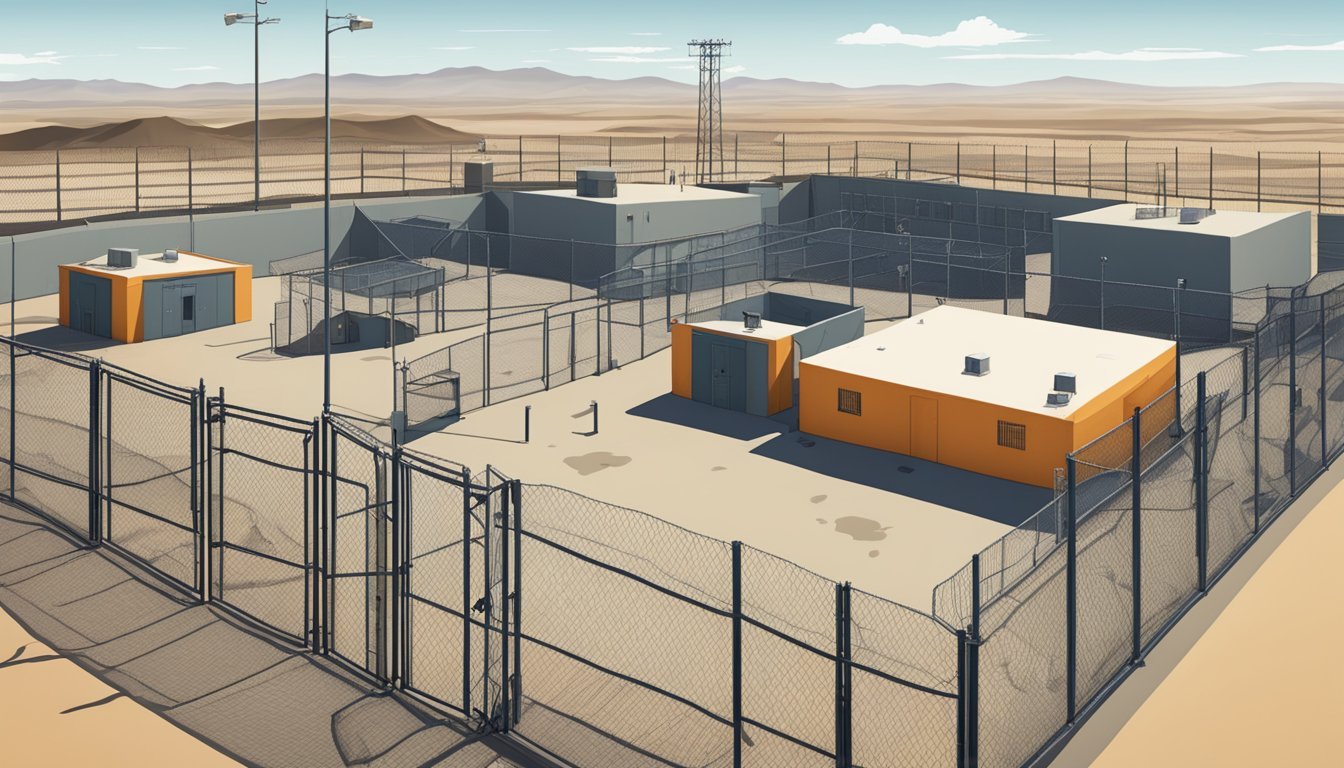Guantanamo's Prisoner: The Real Story Behind 'The Mauritanian'
Unveiling Truths from Slahi's Ordeal
"The Mauritanian" brings to light the harrowing true story of Mohamedou Ould Slahi, a man imprisoned at Guantanamo Bay for 14 years without charge. Based on Slahi's memoir "Guantánamo Diary," the film exposes the harsh realities of life inside one of the world's most notorious detention centers.
Slahi's ordeal began in 2002 when he was captured by the U.S. government in the aftermath of 9/11 and sent to Guantanamo Bay. Despite never being formally charged with a crime, he endured years of interrogation and alleged torture. The film, directed by Kevin Macdonald, depicts Slahi's struggle for freedom and the legal battle that ensued.
"The Mauritanian" stars Tahar Rahim as Slahi and features performances by Jodie Foster and Benedict Cumberbatch. It sheds light on the controversial practices at Guantanamo Bay and raises questions about justice, human rights, and the consequences of the war on terror. The film aims to humanize Slahi's experience and challenge viewers' perceptions of the detention camp's prisoners.
The Story of Mohamedou Ould Slahi
Mohamedou Ould Slahi's life took a dramatic turn when he was detained at Guantanamo Bay for 14 years without charge. His experience sheds light on the controversial practices at the detention facility and the legal challenges faced by those imprisoned there.
Early Life and Background
Born on December 21, 1970, in Rosso, Mauritania, Mohamedou Ould Slahi grew up in a country bordering Morocco and Algeria. He showed academic promise from a young age and pursued higher education in electrical engineering.
Slahi received a scholarship to study in Germany, where he obtained his degree. This opportunity expanded his worldview and set the stage for his future travels.
In December 1990, Slahi traveled to Afghanistan. His stated purpose was to support the mujahideen in their fight against the communist government.
Capture and Detention
Following the September 11, 2001 attacks, Slahi became a person of interest to U.S. authorities. He was arrested in Mauritania in November 2001 and interrogated by local authorities and the FBI.
On August 4, 2002, Slahi was transferred to Guantanamo Bay detention camp in Cuba. He arrived as part of a group of detainees suspected of having ties to al-Qaeda.
The U.S. government alleged that Slahi had connections to the 9/11 plotters, though no formal charges were ever filed against him.
Interrogation and Torture
At Guantanamo, Slahi endured harsh interrogation techniques that many consider torture. These methods included:
Sleep deprivation
Extreme temperature exposure
Sexual humiliation
Threats against family members
The interrogations aimed to extract information about al-Qaeda operations and Slahi's alleged involvement in terrorist activities.
Slahi maintained his innocence throughout his detention. He argued that any associations he had with al-Qaeda members were incidental and not indicative of terrorist involvement.
Legal Battle for Freedom
Slahi's case gained attention from human rights organizations and legal advocates. In 2005, he began writing a memoir detailing his experiences at Guantanamo.
Key events in Slahi's legal battle:
2010: Federal judge orders Slahi's release, citing lack of evidence
2011: U.S. government appeals the release order
2015: Slahi's memoir "Guantanamo Diary" is published, heavily redacted
2016: Periodic Review Board recommends Slahi's release
On October 17, 2016, after 14 years of detention without charge, Mohamedou Ould Slahi was finally released and returned to Mauritania. His story became the basis for the film "The Mauritanian," bringing wider attention to the issues surrounding Guantanamo Bay detentions.
The Legal Framework of Guantanamo Bay
The Guantanamo Bay detention camp operates under a complex legal framework that has evolved since its establishment in 2002. This system has faced numerous challenges and controversies regarding detainee rights, military trials, and indefinite detention practices.
Habeas Corpus and Detainee Rights
Habeas corpus, a fundamental legal principle, has been a contentious issue for Guantanamo detainees. In 2004, the Supreme Court ruled in Rasul v. Bush that detainees had the right to challenge their detention in U.S. courts.
The 2008 Boumediene v. Bush decision further affirmed detainees' habeas corpus rights. This landmark ruling granted them the ability to petition federal courts for review of their detention's legality.
Despite these rulings, practical obstacles often hindered detainees' access to legal representation and courts. The remote location of the facility and security restrictions complicated attorney-client interactions.
Military Commissions and Trials
The U.S. established military commissions to try Guantanamo detainees accused of war crimes. These tribunals faced criticism for their departure from standard civilian and military court procedures.
Key issues included:
Limited defendant rights
Admission of hearsay evidence
Use of classified information
The Military Commissions Act of 2006, later revised in 2009, aimed to address some concerns. However, debates persist about the fairness and legitimacy of these trials compared to civilian courts.
Indefinite Detention and Human Rights Concerns
Guantanamo's practice of indefinite detention without charge has drawn widespread condemnation from human rights organizations. Many detainees have been held for years without formal charges or trials.
This approach has raised serious questions about:
Due process rights
International law compliance
Long-term psychological impacts
Critics argue that indefinite detention violates fundamental human rights principles. Supporters claim it's necessary for national security in the context of the War on Terror.
The ongoing debate highlights the tension between security concerns and upholding the rule of law in challenging circumstances.
The Mauritanian's Influence on Popular Culture
"The Mauritanian" has made a significant impact on popular culture, bringing attention to the complex issues surrounding Guantanamo Bay detention camp. The film's portrayal of real events has sparked discussions and raised awareness about human rights and justice.
Film Adaptation
"The Mauritanian" is based on Mohamedou Ould Slahi's memoir "Guantanamo Diary." The film adaptation, directed by Kevin MacDonald, brings Slahi's story to a wider audience. It vividly depicts Slahi's 14-year imprisonment without charge at Guantanamo Bay.
The movie explores themes of injustice, resilience, and the pursuit of truth. It sheds light on the controversial practices at the detention camp, including interrogation techniques and legal challenges faced by detainees.
Casting and Character Portrayal
The film features an impressive cast that brings depth to the characters. Tahar Rahim delivers a powerful performance as Mohamedou Ould Slahi, capturing his strength and vulnerability.
Jodie Foster portrays defense lawyer Nancy Hollander with determination and conviction. Benedict Cumberbatch takes on the role of military prosecutor Stuart Couch, adding complexity to the narrative.
Shailene Woodley plays Teri Duncan, Hollander's associate, rounding out the talented ensemble. The actors' portrayals help humanize the story and make it relatable to audiences.
Reception and Awards
"The Mauritanian" received critical acclaim for its powerful storytelling and performances. The film earned several award nominations, highlighting its impact on the industry and viewers.
Jodie Foster won a Golden Globe for Best Supporting Actress for her role as Nancy Hollander. The movie's recognition at prestigious awards ceremonies increased its visibility and drew more attention to the issues it addresses.
"The Mauritanian" is available on streaming platforms like Amazon Prime Video, allowing it to reach a global audience. This accessibility has contributed to ongoing discussions about Guantanamo Bay and its impact on human rights.
Impact on Global Perspective
The controversy surrounding Guantanamo Bay has profoundly shaped international views on human rights, justice, and America's role in the world. Public opinion, media coverage, and policy decisions have all been influenced by the detention facility's existence and practices.
Public Opinion and Policy Change
Guantanamo Bay's operations sparked widespread criticism and debate globally. Many countries condemned the U.S. for human rights violations and called for the prison's closure. This pressure led to policy shifts during the Obama Administration, which aimed to close the facility. President Obama signed an executive order in 2009 to shut down Guantanamo, though it remained open due to congressional opposition.
Public sentiment shifted as more information about detainee treatment emerged. Polls showed increasing disapproval of Guantanamo's practices among Americans and international audiences. This change in opinion influenced political discourse and diplomatic relations between the U.S. and its allies.
The Role of Media and Journalism
Media coverage played a crucial role in exposing Guantanamo Bay's conditions. Investigative reports, documentaries, and books like "The Mauritanian" brought detainee experiences to light. PBS and other news outlets provided in-depth coverage of legal battles and prisoner accounts.
Journalism helped uncover CIA practices of extraordinary rendition and torture. These revelations fueled public outrage and demands for accountability. Films like "The Report" further educated audiences about U.S. interrogation tactics post-9/11.
Current Status of Guantanamo Bay
As of 2024, Guantanamo Bay detention camp remains operational, though with a significantly reduced population. The Biden Administration has stated its intention to close the facility, continuing efforts begun under Obama. However, legal and political challenges persist.
The U.S. military still maintains control of the site. Debates continue over how to handle remaining detainees and whether to transfer them to U.S. soil. International pressure for closure remains, with human rights organizations advocating for fair trials or release of prisoners.
Personal Narratives and Memoirs
Guantanamo detainees' accounts offer crucial insights into life inside the infamous prison. These memoirs shed light on interrogation practices, human rights concerns, and the psychological impact of indefinite detention.
Guantanamo Diary: An Inside Look
Mohamedou Slahi's "Guantanamo Diary" provides a harrowing firsthand account of his 14-year imprisonment without charge. Originally published with heavy redactions, the uncensored version reveals disturbing details of interrogation techniques and living conditions.
Slahi describes enduring sleep deprivation, isolation, and various forms of physical and psychological abuse. His memoir became a bestseller, offering readers an unprecedented glimpse into the secretive detention facility.
The book's raw honesty and vivid descriptions helped humanize detainees and challenge public perceptions of Guantanamo Bay.
Literature as a Reflection of Injustice
Personal narratives from Guantanamo detainees serve as powerful testimonies against human rights abuses. These works expose the harsh realities of indefinite detention and interrogation practices that push legal and ethical boundaries.
Memoirs like "Guantanamo Diary" document experiences of waterboarding, stress positions, and prolonged solitary confinement. By sharing their stories, former prisoners give voice to those still held without trial.
These accounts have become essential reading for understanding the human cost of counterterrorism policies and the importance of due process.
Contributions to Legal and Political Discourse
Detainee memoirs have played a significant role in shaping public opinion and influencing policy debates. These personal narratives provide crucial evidence for human rights organizations and legal teams working to challenge detention practices.
Slahi's memoir, in particular, helped build support for his release and highlighted systemic issues within Guantanamo's legal framework. Such accounts have been cited in court cases and congressional hearings.
By offering detailed insights into interrogation methods and prison conditions, these memoirs continue to inform discussions on national security, ethics, and the rule of law.
The Broader War on Terror Context
The 9/11 attacks sparked a global counterterrorism campaign led by the United States. This effort targeted Al-Qaeda and its leader Osama bin Laden, but also raised concerns about civil liberties and human rights.
9/11 Attacks and the Aftermath
On September 11, 2001, Al-Qaeda terrorists hijacked four airplanes, crashing them into the World Trade Center and the Pentagon. The attacks killed nearly 3,000 people and shocked the world.
President George W. Bush declared a "War on Terror" in response. This led to military operations in Afghanistan and later Iraq. The U.S. also expanded its intelligence gathering and detention practices.
Congress passed the USA PATRIOT Act, granting law enforcement agencies broader powers. This raised concerns about privacy and civil liberties among some critics.
Al-Qaeda and Osama bin Laden
Al-Qaeda, founded by Osama bin Laden in 1988, became the primary focus of U.S. counterterrorism efforts. The group advocated for violent jihad against the West and its allies.
Bin Laden orchestrated several attacks on U.S. targets in the 1990s, including the 1998 embassy bombings in Kenya and Tanzania. He found refuge in Afghanistan under Taliban protection.
The U.S. launched Operation Enduring Freedom in October 2001 to dismantle Al-Qaeda and remove the Taliban from power. Bin Laden evaded capture for nearly a decade before U.S. forces killed him in Pakistan in 2011.
Counterterrorism Efforts and Controversies
The CIA established secret "black sites" to detain and interrogate terror suspects. Bagram Air Base in Afghanistan and Guantanamo Bay in Cuba became key detention facilities.
Enhanced interrogation techniques, including waterboarding, sparked intense debate. Critics argued these methods amounted to torture and violated international law.
The U.S. military created special tribunals called Military Commissions to try Guantanamo prisoners. These faced legal challenges and criticism for lacking due process protections.
Detention without charge and alleged human rights abuses at Guantanamo became contentious issues. Many detainees were held for years without formal charges or trials.




